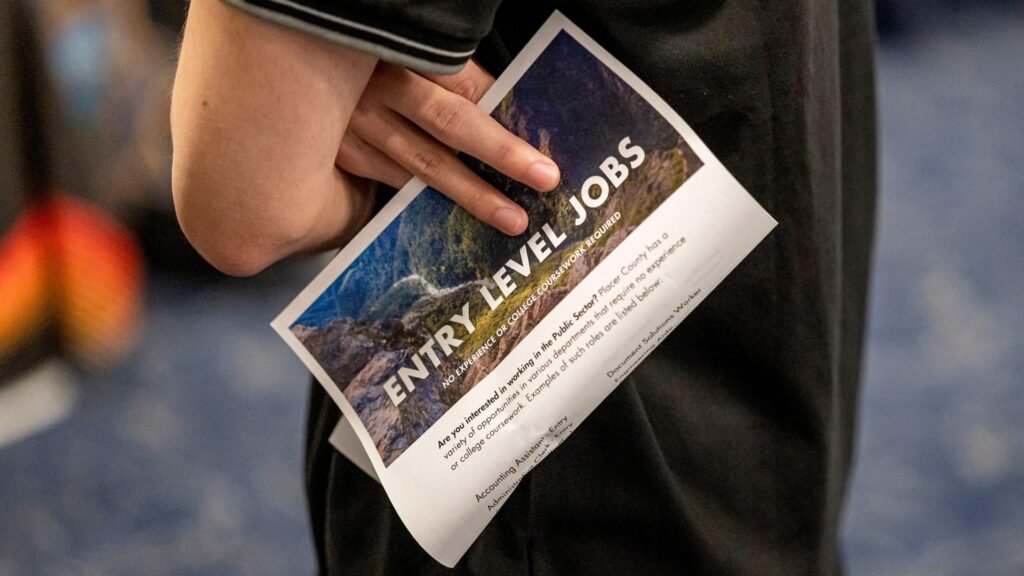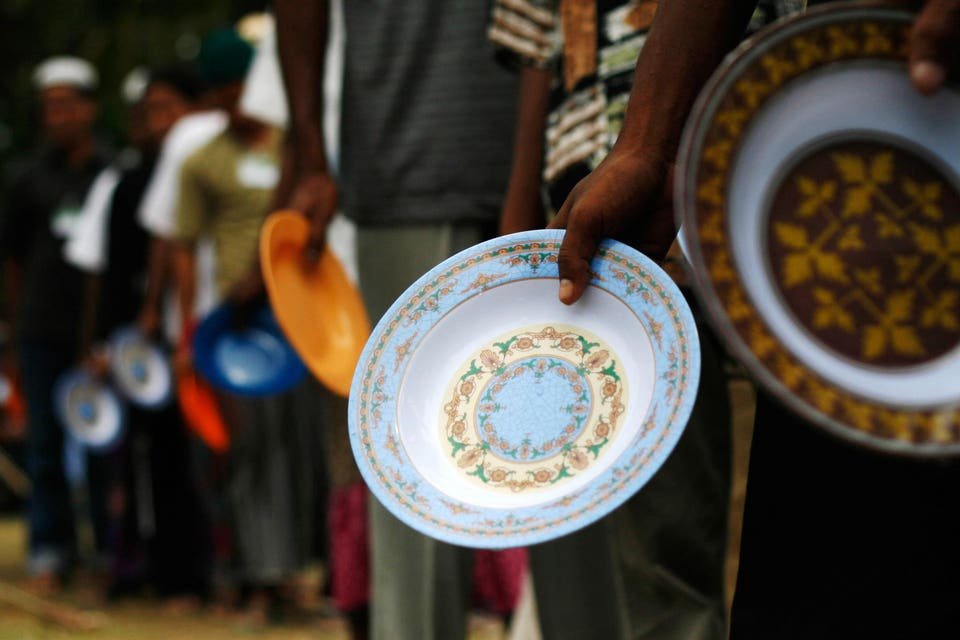
The United States government has already collected tens of billions of dollars from President Donald Trump’s “reciprocal tariffs.”
But that money — and a lot more — could end up being refunded if the Supreme Court agrees with lower courts that many of the levies on imports from other countries are illegal.
How much could that end up being?
Anywhere between $750 billion to a whopping $1 trillion, warned Treasury Secretary Scott Bessent in a declaration filed with the Supreme Court last week.
That eye-popping total could include the more than $72 billion in tariff revenue collected so far by U.S. Border and Customs enforcement since Trump’s “Liberation Day” announcement, according to data as of Aug. 24.
It would also include money projected to be collected from the at-risk tariffs by next June.
“Unwinding them could cause significant disruption,” Bessent told the Supreme Court.
Bessent’s declaration was part of a request by the Trump administration to have the Supreme Court quickly rule the tariffs are legal, and not wait until next summer, the normal time frame for such a decision.
The sooner the court rules, the less money the government could be required to refund if a majority of justices find the tariffs to be illegal.
Refunding tariffs is not an unprecedented situation for the U.S. government. But the amount of tariffs the Trump administration could be forced to refund is.
Under former President Joe Biden, importers of some Chinese goods were granted refunds on Section 301 tariffs during a limited period, according to a 2022 Holland & Knight alert. But those refunds were relatively paltry.
Bessent said he is “confident” that the Trump administration will get the Supreme Court to reverse the lower court’s rulings.
But if the Supreme Court says that refunds are required, “we’d have to do it,” Bessent told NBC News‘ “Meet the Press” on Sunday. And that would be “terrible,” he added.
Two lower courts have ruled Trump overstepped his presidential authority when he invoked the International Emergency Economic Powers Act to justify imposing steep levies on virtually every U.S. trading partner.
Last week, the Trump administration asked the Supreme Court to reverse those decisions — quickly.
“The stakes in this case could not be higher,” Solicitor General D. John Sauer wrote in the administration’s petition to the high court. “To the President and his most senior advisors, these tariffs thus present a stark choice: With tariffs, we are a rich nation; without tariffs, we are a poor nation,” Sauer wrote.
“The President predicts that if “the United States were forced to pay back the trillions of dollars committed to us, America could go from strength to failure the moment such an incorrect decision took effect,’ and ‘the economic consequences would be ruinous, instead of unprecedented success.’ “
The Supreme Court has not indicated when it might act on the Trump administration’s request to take the case.
But the fact that the Trump administration did not wait until mid-October to ask the high court to take the case “at least increases the odds that we could see a decision from the Supreme Court by the end of the year,” said Ryan Majerus, a partner in the international trade team at King & Spalding.
Major questions remain over how a refund process would work for the administration and the companies hit hardest by the tariffs
Majerus said it is possible that importers could be required to file claims themselves to secure the refunds.
Trade experts are already urging companies to keep meticulous records and prepare to file refund claims, warning that the process could be messy.
“Documenting import histories and filing necessary paperwork promptly will be key,” a recent client alert from Brownstein Hyatt Farber Schreck said.
If brokers are required to file for their refunds, “the workload for our customs teams would double overnight and be met with importers very eager to get those dollars back,” Mike Short, president of global forwarding at C.H. Robinson, recently told CNBC.
The New York Times’ DealBook newsletter reported that some importers are being approached about selling their rights to potential refunds to third-party firms at pennies on the dollar.
Buyers of those rights are effectively betting that the Supreme Court will overturn Trump’s tariffs, and give them a handsome return on those wagers.
The White House did not immediately respond to CNBC’s request for comment.
President Donald Trump speaks to reporters after stepping off Air Force One on September 7, 2025 at Joint Base Andrews, Maryland. Kevin Dietsch | Getty ImagesThe United States government has already collected tens of billions of dollars from President Donald Trump’s “reciprocal tariffs.”But that money — and a lot more — could end up being refunded if the Supreme Court agrees with lower courts that many of the levies on imports from other countries are illegal.How much could that end up being?Anywhere between $750 billion to a whopping $1 trillion, warned Treasury Secretary Scott Bessent in a declaration filed with the Supreme Court last week.That eye-popping total could include the more than $72 billion in tariff revenue collected so far by U.S. Border and Customs enforcement since Trump’s “Liberation Day” announcement, according to data as of Aug. 24.It would also include money projected to be collected from the at-risk tariffs by next June.”Unwinding them could cause significant disruption,” Bessent told the Supreme Court.Bessent’s declaration was part of a request by the Trump administration to have the Supreme Court quickly rule the tariffs are legal, and not wait until next summer, the normal time frame for such a decision.The sooner the court rules, the less money the government could be required to refund if a majority of justices find the tariffs to be illegal.Refunding tariffs is not an unprecedented situation for the U.S. government. But the amount of tariffs the Trump administration could be forced to refund is.Read more CNBC politics coveragePotential Trump tariff refund bill could top $1 trillion as Supreme Court fight loomsTrump Epstein letter and drawing from ‘birthday book’ releasedFrench prime minister Francois Bayrou ousted in confidence voteTrump loses bid to toss $83.3 million judgment in E. Jean Carroll defamation caseFrench prime minister faces the axe as lawmakers prepare to hold confidence voteTreasury Secretary Bessent warns of massive refunds if the Supreme Court voids Trump tariffsWhite House lambasts $2 trillion Norwegian wealth fund’s Caterpillar exitUK feels the heat as investors and critics question its futureTrump asks Supreme Court to quickly hear appeal to save his tariffsCongress races to avoid government shutdown as partisan standoff deepensBan on congressional stock ownership gains momentum with new billUnder former President Joe Biden, importers of some Chinese goods were granted refunds on Section 301 tariffs during a limited period, according to a 2022 Holland & Knight alert. But those refunds were relatively paltry.Bessent said he is “confident” that the Trump administration will get the Supreme Court to reverse the lower court’s rulings.But if the Supreme Court says that refunds are required, “we’d have to do it,” Bessent told NBC News’ “Meet the Press” on Sunday. And that would be “terrible,” he added.Two lower courts have ruled Trump overstepped his presidential authority when he invoked the International Emergency Economic Powers Act to justify imposing steep levies on virtually every U.S. trading partner.Last week, the Trump administration asked the Supreme Court to reverse those decisions — quickly.”The stakes in this case could not be higher,” Solicitor General D. John Sauer wrote in the administration’s petition to the high court. “To the President and his most senior advisors, these tariffs thus present a stark choice: With tariffs, we are a rich nation; without tariffs, we are a poor nation,” Sauer wrote.”The President predicts that if “the United States were forced to pay back the trillions of dollars committed to us, America could go from strength to failure the moment such an incorrect decision took effect,’ and ‘the economic consequences would be ruinous, instead of unprecedented success.’ “The Supreme Court has not indicated when it might act on the Trump administration’s request to take the case.But the fact that the Trump administration did not wait until mid-October to ask the high court to take the case “at least increases the odds that we could see a decision from the Supreme Court by the end of the year,” said Ryan Majerus, a partner in the international trade team at King & Spalding.Major questions remain over how a refund process would work for the administration and the companies hit hardest by the tariffsMajerus said it is possible that importers could be required to file claims themselves to secure the refunds.Cargo containers stacked aboard a ship at the Jakarta International Container Terminal in Tanjung Priok Port on Aug. 7, 2025.Str | Afp | Getty ImagesTrade experts are already urging companies to keep meticulous records and prepare to file refund claims, warning that the process could be messy.”Documenting import histories and filing necessary paperwork promptly will be key,” a recent client alert from Brownstein Hyatt Farber Schreck said.If brokers are required to file for their refunds, “the workload for our customs teams would double overnight and be met with importers very eager to get those dollars back,” Mike Short, president of global forwarding at C.H. Robinson, recently told CNBC.The New York Times’ DealBook newsletter reported that some importers are being approached about selling their rights to potential refunds to third-party firms at pennies on the dollar. Buyers of those rights are effectively betting that the Supreme Court will overturn Trump’s tariffs, and give them a handsome return on those wagers.The White House did not immediately respond to CNBC’s request for comment.Adblock test (Why?)
US Top News and Analysis



